In 2021, The Times crowned Thornbury Castle Hotel as Britain’s Best Romantic Hotel. Guests time travel back to Tudor days, to a castle that was once Henry Vlll’s country escape, for a majestic taste of Renaissance living.
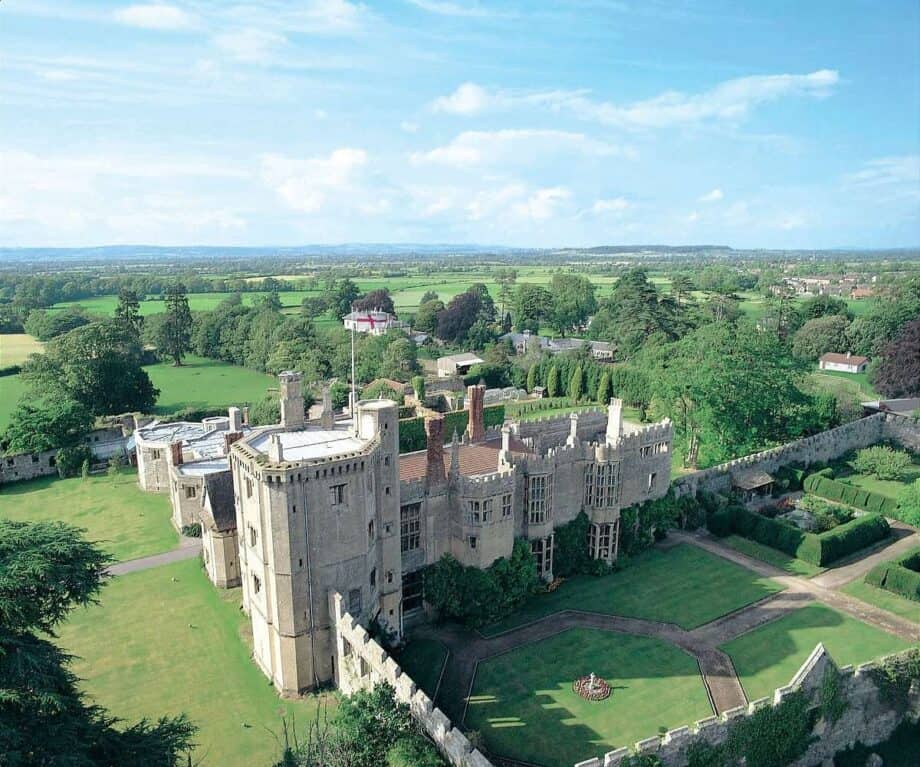
Sleep regally in the octagonal Henry Vlll suite, where he and Anne Boleyn stayed for 10 days in 1535 whilst waiting for Bristol’s plague to abate. Climb the 77 steps to the fairy tale Catherine of Aragon tower with its 10 feet wide bed. Or relax in any of the other 25 beautifully curated bedchambers. Recalling palatial Tudor living, Thornbury has sumptuous bedchambers rather than rooms.
Begun in 1510 by Edward Stafford, the third Duke of Buckingham, Thornbury Castle was nearing completion when Henry appropriated it after the he had Stafford executed for treason in 1521.
The welcome
With just 27 bedchambers, the welcome is warm and personal. First, we are shown the lounge, where afternoon tea is being served, and then the library which leads to the bar.
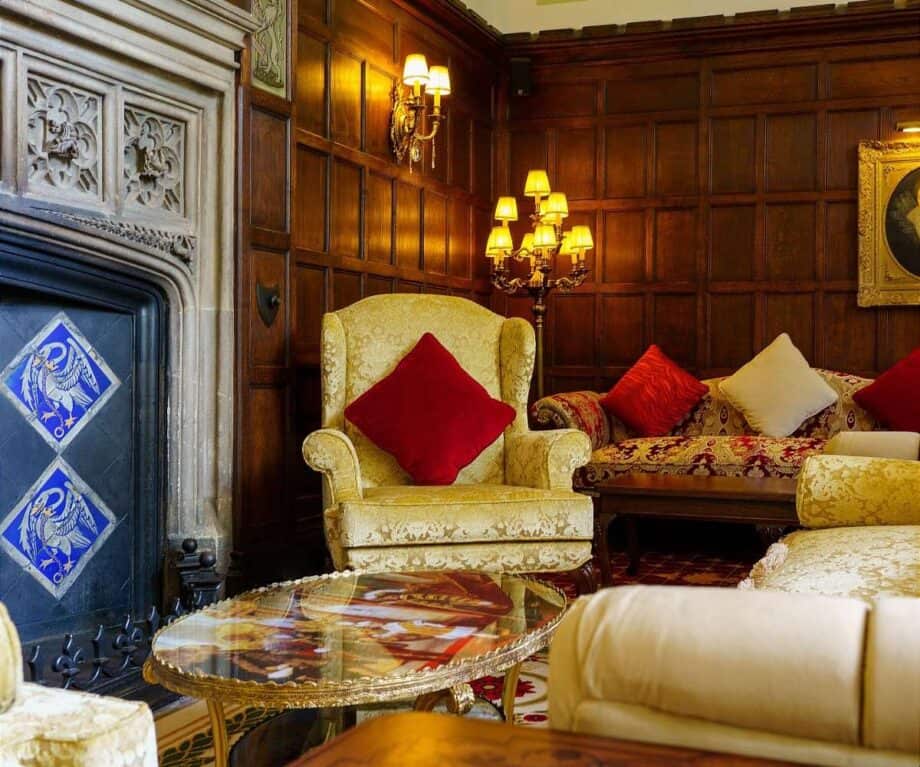

Our luggage is taken across the courtyard garden to our bedchamber and low arched doorways are pointed out. No wonder that Henry Vlll frequently had a sore head. At 6’2” he was a giant of a Tudor.
The bedchamber
Beneath a timber beamed ceiling and glinting chandelier, the large Mary Queen of Scot’s bedchamber has armchairs, dressing table, chests of drawers, fireplace and tapestry.
Our view is across the rose-gardened courtyard to an oriel window that was part of Stafford’s first floor accommodation. Above is a red brick chimney from 1514 that predates Hampton Court’s chimneys by a year.
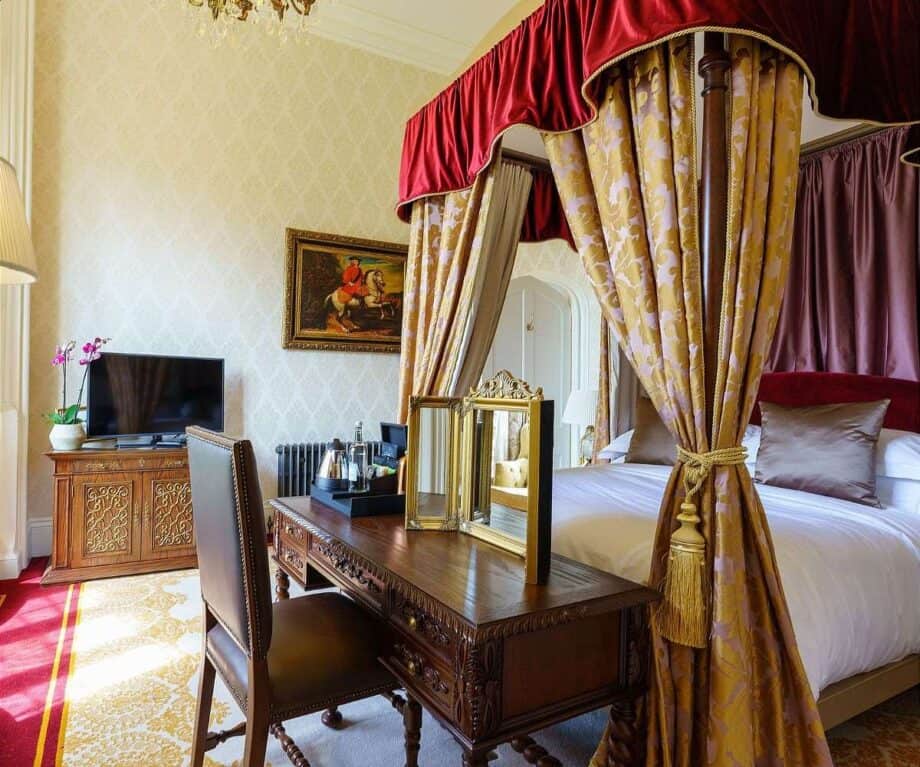

Although there is plenty of exposed stonework within the castle’s four feet thick walls, the bedchamber, with chandelier-style wall lights casting warm pools of light, and acres of fitted carpet, is surprisingly cosy.
Thornbury’s owners have discreetly introduced contemporary comforts: a fridge hidden away behind the dark wood marquetry, a television packed with information on the property and phone charging points by the bed. Wide four poster beds are designed for modern folk, not vertically challenged Tudors. Each bedchamber is named after a prominent Tudor character, a cast list that includes Henry’s six wives. Within a gilded frame, the story of Mary Queen of Scots’ troubled life is told. Embroiled in catholic / protestant strife and euro power politics, she was imprisoned for 19 years before her execution.
The bathroom
A hobbit-sized door leads through a mini-corridor of built in wardrobes into a dual aspect bathroom. Wooden shutters preserve privacy.
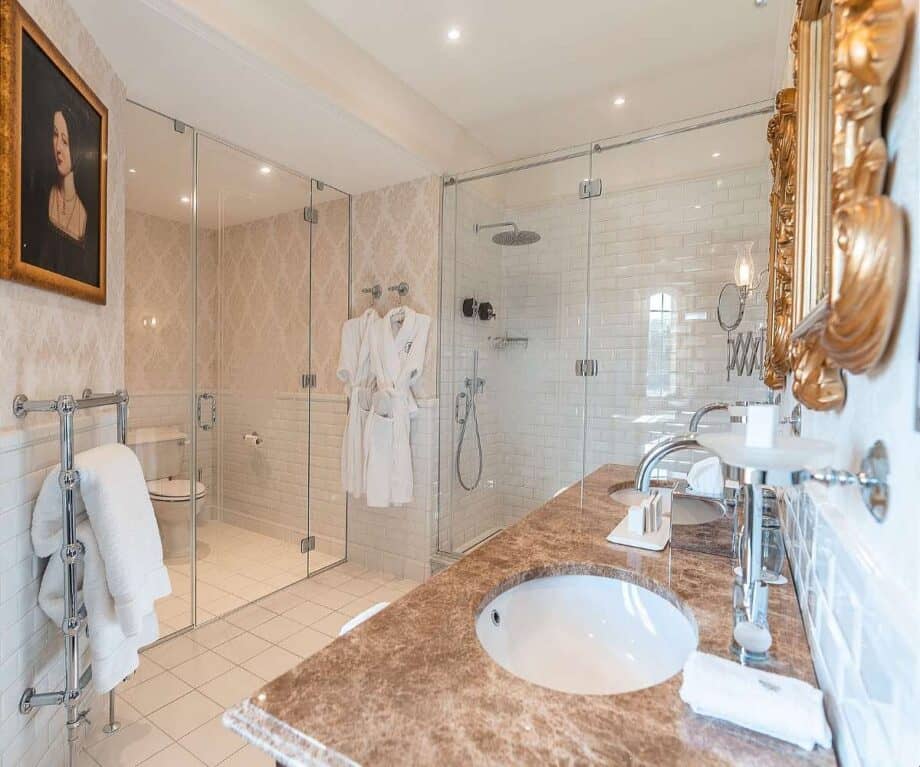

Even here you cannot escape history and the legacy of Stafford’s ego. His sealed knot coat of arms is etched into the glass of the showered door and embroidered on the flannels.
The facilities
Thornbury’s 3 AA Rosette restaurant draws in foodies from afar. From the moment guests take a seat in the historic-tomed library or by the log-fire toasted lounge for drinks, this is a regal dining experience. The black-tailed maitre d’ sashays between bar and restaurants ensuring that his waistcoated staff, immaculate in white blouse and black ties, provide slick service.
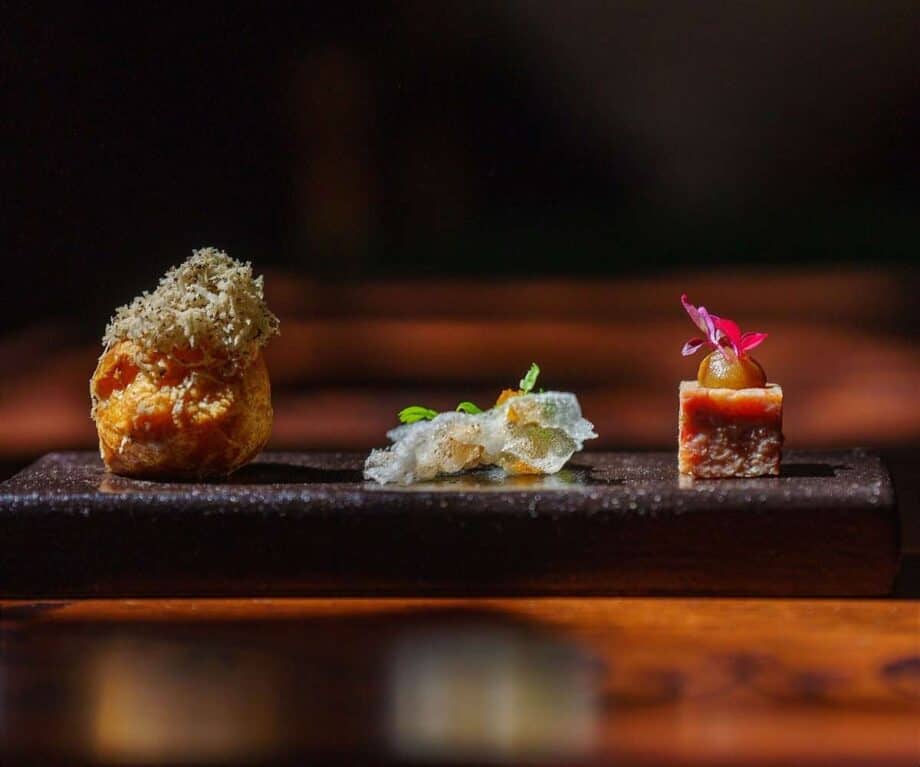

A portrait of Henry Vlll, in that famous legs astride dominating pose, looks out over one of the two dining rooms. Though he would not approve of Executive Chef David Campbell’s light and sophisticated menu despite the superlative sourcing and eye-pleasing presentation.
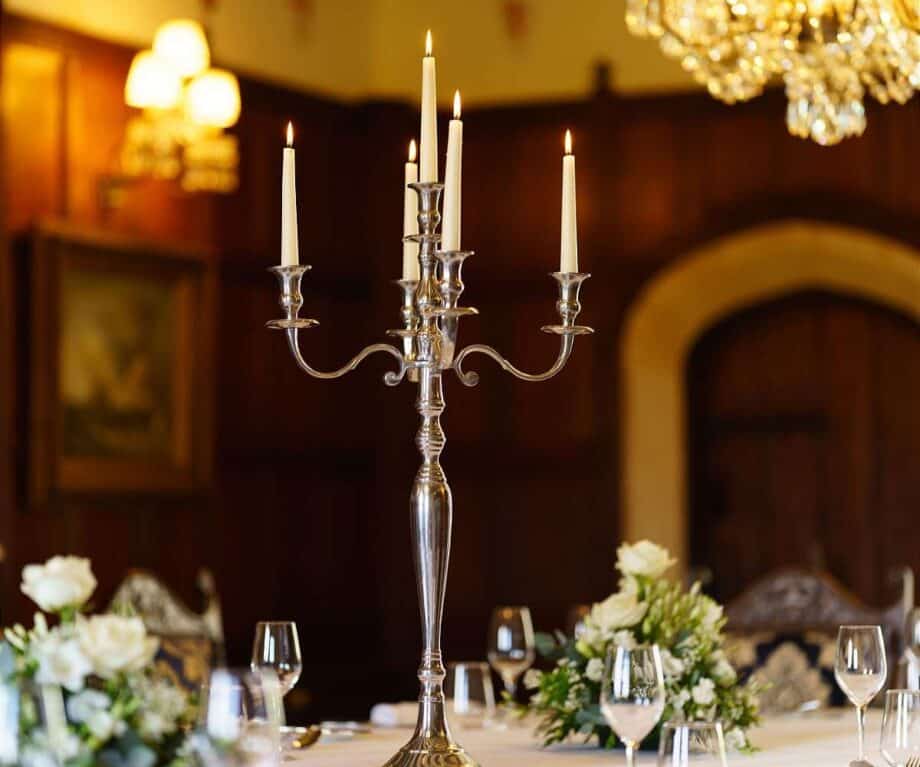

Henry was more a half-a-roast-boar glutton than a delicate braised shin of beef gourmand. Pan roasted halibut with salt cod mash, BBQ gem lettuce, brown shrimp and mussels would have been far too refined for the monarch’s tastes. And what would have been the volatile carnivore’s reaction to spiced quinoa?


In terms of facilities, there isn’t a single cardio-machine at Thornbury Castle nor a swimming pool for laps. But in a nod to 21st century indulgence there is a menu of relaxing massages available.
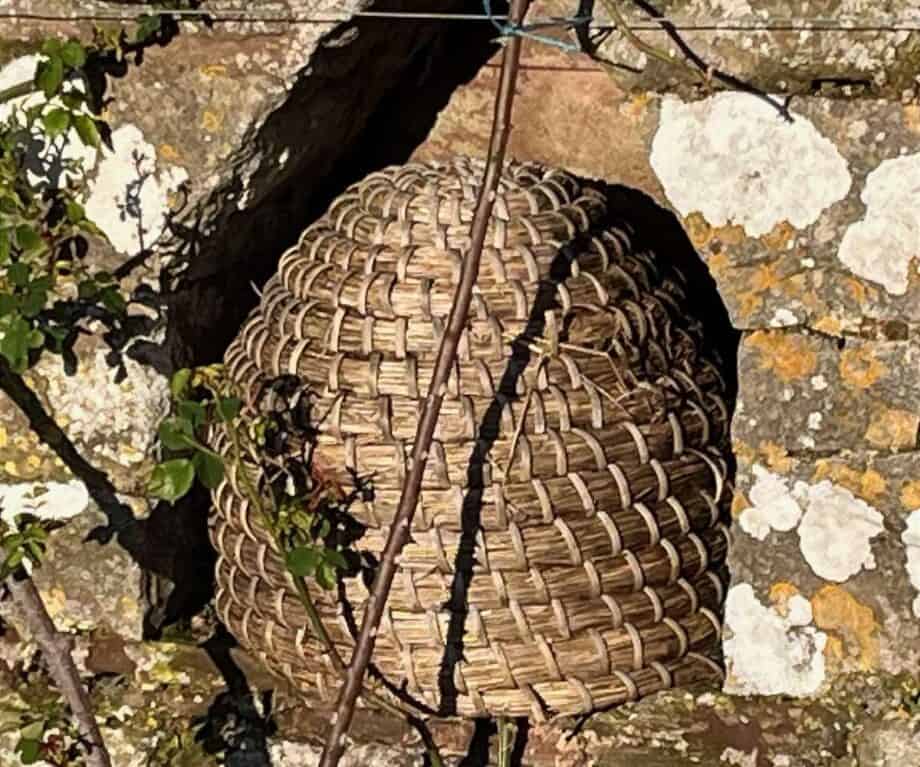

Otherwise, activities are distinctly Tudor. Archery, croquet or falconry on the lawn. A walk through the Goodly Garden where the ladies once gathered to gossip by the skep straw bee hives, amongst the quince and strawberry trees. Or a stroll through the labyrinth where they may have discussed who would succeed Anne Boleyn as Queen. A mere 10 months after her Thornbury stay Anne was dead. Beheaded.
The location
Overlooking the Severn Estuary, Thornbury is within a short drive of Bristol for visits to the Clifton Suspension Bridge, the redeveloped docks and Brunel’s SS Great Britain.
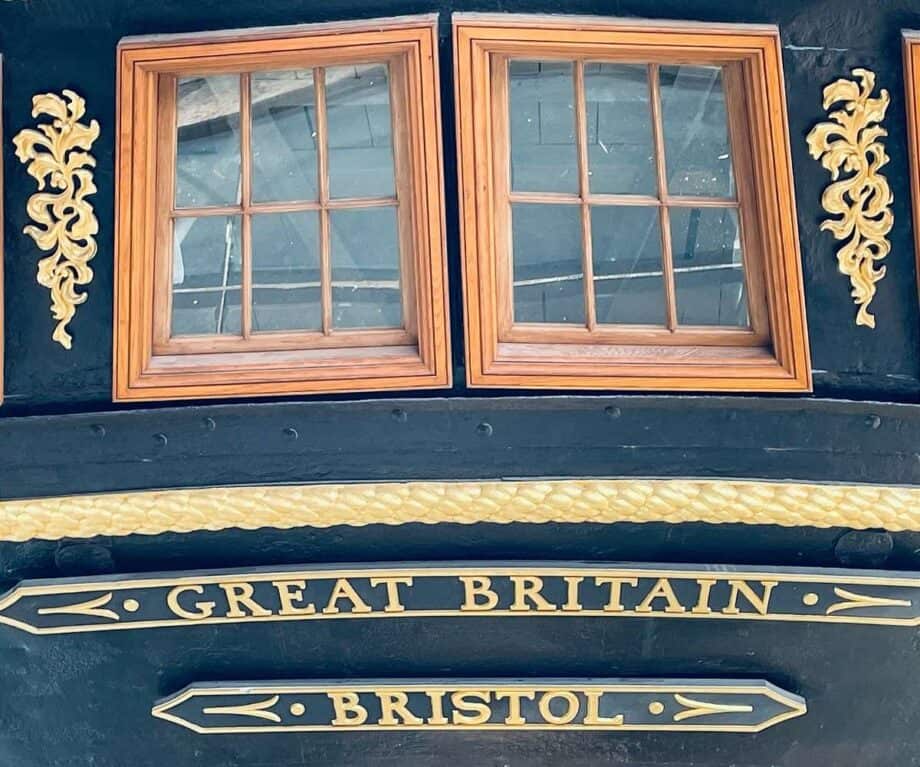

A slightly longer drive takes guests to Bath with its grandiose Regency architecture and Jane Austen legacy.
Other nice touches
A decanter of sloe gin, distilled locally, makes for a relaxing nightcap.
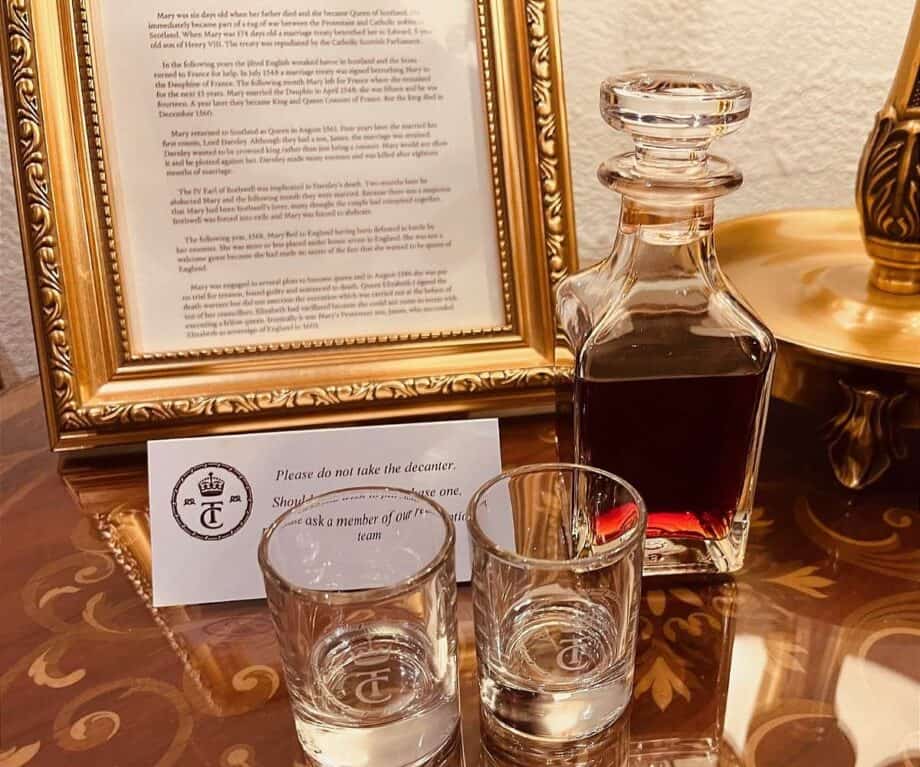

Recalling a bygone age of service, early morning tea and coffee can be delivered. Even though there is a very impressive tea and coffee tray, including a copper cafetière within the bedchamber.
No characterless, tepid breakfast buffet here. Piping hot breakfasts are freshly cooked to order. Nor is the tea from an electric machine. The aristocratic tea menu includes choices of Halmari Estate Assam and Himalayan Darjeeling. Needless to say both decaf tea and coffee are available.
For a unique celebration of a special occasion, you can book a private dinner in the dungeon.
The cost
Bedchamber rates begin from £299. For dinner, three courses from the a la carte menu costs £59.
The best bit
Book a tour with a historian to learn how the Stafford’s relations with King Henry Vlll were a microcosm of the Tudor period: power, conflict and beheadings. By the end of Henry’s reign in 1547, executions had decimated the Stafford family tree.
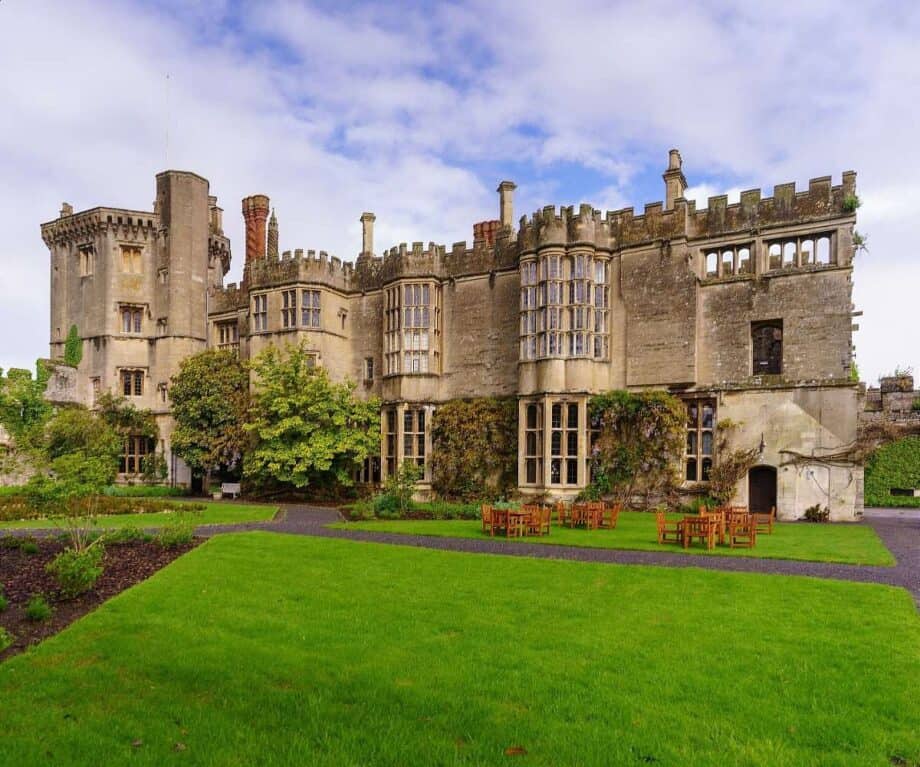

With stone from his Cotswold quarries, Edward Stafford, designed a grand castle that was also a palace arrogantly exulting his status. His name and titles are displayed above the gate, his sealed knot heraldic crests carved throughout the property.


As England’s second richest man, descended from Edward lll, he thought he had a better claim to the throne than his cousin, Henry Vlll. As historian David Starkey has written, Stafford barely bent his knee for Henry. That was until Henry lured Stafford to London and had him beheaded in 1521.
The final verdict
A fascinating insight into Tudor times with contemporary regal comforts. There’s a helicopter pad for those who travel from afar for chef David Campbell’s superb fare.
Disclosure: Our stay was sponsored by Thornbury Castle Hotel and Restaurant .
Did you enjoy this article?
Receive similar content direct to your inbox.
Please enable JavaScript in your browser to submit the form

